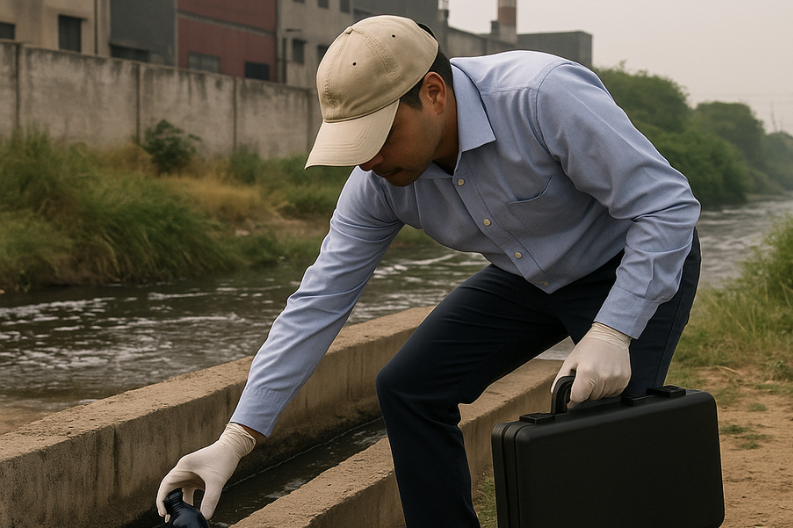The National Green Tribunal (NGT) has directed the Central Pollution Control Board (CPCB) to verify whether industries in Sonipat are adhering to waste treatment standards. The order, issued on August 25, came in response to a petition filed by activist Varun Gulati, who raised concerns about untreated industrial waste from the Barhi industrial hub being discharged into drains that flow into the Yamuna River.
The NGT instructed the CPCB to carry out an independent assessment of the Common Effluent Treatment Plants (CETPs) in Sonipat, which together handle 26 million litres of wastewater daily. The board must collect and analyze samples from the inlets and outlets of the CETPs and cross-check findings with earlier reports submitted by the Haryana State Pollution Control Board (HSPCB).
In its report dated August 23, HSPCB stated that the CETPs have largely complied with discharge standards since March 2023. However, violations occurred in June and July, leading to environmental compensation penalties amounting to ₹26.4 crore, including separate penalties of ₹25.2 crore and ₹1.2 crore. The board also disclosed that 113 of 136 industrial units in the Barhi area were found in violation of environmental rules.
The HSPCB has not only imposed fines but has also initiated legal action against one of the sewage treatment plants in Sonipat court. This move signals a firm stance against polluters and underscores the urgency of addressing untreated waste discharge.
The Yamuna River, which is crucial for millions of people across northern India, faces severe pollution threats from such practices. The river provides water for drinking, irrigation, and daily use, and continued contamination poses risks to both human and ecological health.
The NGT’s action highlights the shared responsibility of industries, government agencies, and communities in protecting vital water sources. While authorities work to enforce stricter regulations, citizens are also encouraged to spread awareness and support initiatives aimed at preserving the river.
By ordering the CPCB to verify effluent standards, the tribunal has reinforced accountability measures for industries and emphasized the need to prioritize clean water and environmental sustainability.



